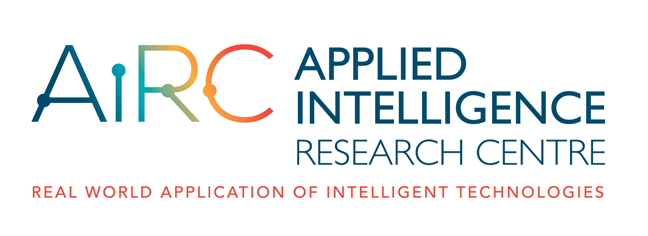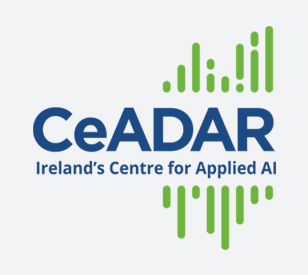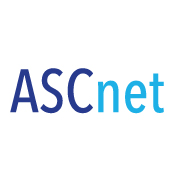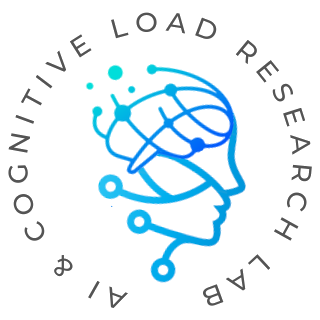The School supports a number of research centres and groups, each of them are equipped with the expertise, techniques, and facilities to deliver excellent results to make significant influences regionally, nationally, and globally.
Data Analytics, Machine Learning, Text Analytics, Natural Language Processing, Intelligent Agents, Situated Interaction, Security

The Applied Intelligence Research Centre (AIRC) is an institutionally accredited R&D centre within Technological University Dublin.
AIRC engages in researching the application of computational intelligence technologies to real-world problems. The core competencies of the AIRC include Data Analytics, Machine Learning, Text Analytics, Natural Language Processing, Language Technologies, Intelligent Agents, Situated Interaction and Security. Examples of real-world problems the AIRC have addressed include spam filtering, sentiment analysis, dialogue management, custom search tools for language teachers, human-robot and human-computer interaction, secure mobile financial transactions, engaging game characters, companion agents for mobile devices, application for neuroscience, and the management and visualization of large data collections.
The projects undertaken by members of the Centre are funded by SFI, the HEA and other funding schemes. Members of the Centre are also involved in a range of commercialization activities. Members of the AIRC are engaged with national research centres such as the SFI Funded Adapt and Connect Centres as well as the Enterprise Ireland funded CeADAR Centre for Applied Data Analytics. Also collaborations exist with the SFI CRTs ML-Labs, and D-Real centres.
AIRC was originally created by Professors Sarah Jane Delaney, Professor John Kelleher and Dr. Brian Mac Namee as the Artificial intelligence Research Group. Since its first creation the group grew strongly and achieved TU Dublin accreditation as a recognized research centre in 2011. The AIRC is closely aligned with the School of Computer Science in TU Dublin, but is open to members from all schools in TU Dublin.
PhD projects are available on the AIRC website.
Machine Learning, Deep Learning, Artificial Intelligence, Text Analytics

The National Centre for Applied Data Analytics (CeADAR) is Ireland’s national centre for Applied AI. CeADAR is a market-focused technology centre that drives the accelerated research, development, and deployment of AI and data analytics technology and innovation into businesses. The Centre is the bridge between the worlds of applied research in AI and data analytics and their commercial deployment.
CeADAR is funded by Enterprise Ireland and IDA Ireland, is headquartered in University College Dublin and is a partnership with Technological University Dublin. TU Dublin and its academic partners work closely with Irish based companies to make the centre an internationally renowned hub for data analytics research.
The Centre’s work focuses on developing tools, techniques and technologies that enable more people, organizations and industries to use analytics and AI for better decision making, unlocking hidden insights and sustained competitive advantage.
CeADAR has particular strengths in:
- Predictive analytics
- Machine and deep learning
- Artificial intelligence
- Real-time analytics
- Text analytics and natural language processing
- Data visualisation
- Blockchain and smart contracts
- Computer vision and image analytics
The Centre has an extensive catalogue of technology demonstrators, and is particularly active in working with companies to develop bespoke solutions to their requirements.
Industry membership of CeADAR has grown significantly in recent years and now totals 90 industry partners ranging from multi-nationals to indigenous SMEs spanning every industry vertical.
The Centre is also the focal point of a thriving national ecosystem delivering frequent seminars, conferences, and members’ networking events throughout the year.
CeADAR was awarded the Dunn & Bradstreet prize for Best Analytics Research Group Ireland at the DatSci Awards and in November 2018 it received the European i-Spaces GOLD award from the Big Data Value Association in Brussels. CeADAR is the designated EU AI Digital Innovation Hub in Ireland and is one of only 30 across the EU.
Digital Ethics, Education, Entrepreneurship, Health Informatics, Internationalisation

The Applied Social Computing Network (ASCNet) research is focused on problems relating to real-world issues in areas such as Health Care, Education, Climate, Planet and People. The research group is focused on bringing technology-based research to real-world problems and spans all computing disciplines relevant to these problems.
Machine Learning, AI, Applications of AI
The Science Foundation Ireland Centre for Research Training in Machine Learning (ML-Labs) is a collaboration between Technological University of Dublin, University College Dublin (UCD), and Dublin City University (DCU). The centre is co-funded by Science Foundation Ireland and industry partners. ML-Labs brings together internationally recognized supervisors who work at the cutting-edge of Machine Learning research and its application. Students involved in the Labs benefit from a world-class, inter-institutional programme in a mature interdisciplinary environment that emphasizes state-of-the-art research with an industry-relevant and entrepreneurial focus.
Virtual Reality, Augmented Reality

Multimodal digital media, across video, text, image, speech and Virtual/Augmented Reality (VR/AR) content, are rapidly reshaping our working and living environments. Seamlessly blending digital media and interaction within the physical world offers disruptive potential to enhance our effectiveness, efficiency and quality of engagement in everyday life.
The Science Foundation Ireland Centre for Research Training in Digitally-Enhanced Reality (d-real) is an innovative, industry partnered, research training programme that equips PhD students with deep ICT knowledge and skills across Digital Platform Technology, Content and Media Technology and their application in Industry sectors. d-real postgraduate students will make research breakthroughs in areas such as multimodal interaction, multimodal digital assistants, multilingual speech processing, real-time multilingual translation and interaction, machine intelligence for video analytics and multimodal personalization and agency.
d-real is funded by Science Foundation Ireland and by the contributions of industry partners. d-real is also supported by the ADAPT SFI Research Centre. The partnership includes Technological University Dublin, Trinity College Dublin, Dublin City University, National University of Ireland (Galway), and University College Dublin.
Future Networks, Internet of Things, Human Interaction, Networks
The Science Foundation Ireland Centre for Research Training in Advanced Networks for Sustainable Societies (ADVANCE CRT) is focused on Future Networks and the Internet of Things with applications in sustainable and independent living.
We live in a society where ubiquitous, high-speed communication networks enable, and increasingly dominate, our family, social and working lives. These networks enable an ever-increasing range of human-to-machine and machine-to-machine (M2M) communication applications in the Internet of Things. This expanding hyper-connectivity will create new communication, sensing and control services, and forms of interconnectivity and services between people and Things in ways we cannot yet even fully envisage. Two societal pressures drive the need for hyper-connectivity – Urbanisation and Rural Depopulation.
Meeting both the technical and societal challenges of global hyper-connectivity requires multi- and inter-disciplinary approaches. Our vision is to train the next generation of researchers who will seek solutions to the technical and societal challenges of global hyper-connectivity between large numbers of People and Things.
Artificial Intelligence, Language, UI Interaction

The discipline of Artificial Intelligence (AI) has been drastically influencing the society, and since its inception in the 1950s, it has evolved in many different ways. Originally constrained in laboratories, where the foundations of AI were laid, it is now a wide field of research, with many ramifications. AI grew from a bunch of small-scale ideas to important research areas such as machine learning, reasoning, natural language processing, robotics, planning and perception as well as computer vision. This evolution was followed by a plethora of applications in fields such as medicine and health-care, finance and marketing, the entertainment and gaming industry, transportation, military and safety critical fields, as well as more recent such as in education and neuroscience.
By developing intelligence machines, with a goal of understanding human behavior, language and emotions, the Artificial Intelligence and Cognitive Load Lab (AICL) performs exciting research aimed at pushing the boundaries of artificial intelligence and bridging the gap between machines and human beings.
Supported by IBM, it leverages on its Power processor-based technology. AICL uses the physical servers and software made available under the IBM Power Academic Initiative umbrella, and IBM Power Virtual Server on IBM Cloud.
